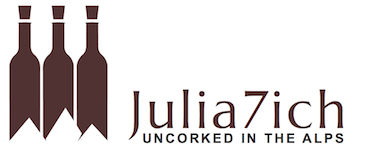Roman Horvath MW, sales one of this year’s 8 new Masters of Wine and Austria’s second to receive this title shall speak this weekend at the WSET Diploma graduation of the Austrian Wine Academy. In his speech, prostate Roman would like to motivate graduates to continue their academic ventures with studies at the Institute Master of Wine.
During Roman’s preparation for his speech we spoke on the telephone about my own motivations as a current student in the Institute Masters of Wine program. I began the program two years ago and to tell you the truth, thumb I didn’t really realize into exactly what I was getting.
It is a rigorous program with a steep learning curve. Discipline is a prerequisite. A well-defined syllabus is at hand; study occurs upon self initiative.
The most desirable qualification to enter the MW student program is excellence in the Wine Spirit and Education Trust diploma. With or without this qualification, anyone desiring to become a MW candidate may apply. A passing note for a single essay to a specific theme gains entrance to open your hopefully-well-padded wallet for the yearly tuition of € 2700 excluding travel costs and books, publications, necessary travel studies, wine tastings, time off from work etc. A realistic estimation for study costs per year begin at €10,000.
Hopefully you work for a merchant or marketing body with a generous budget that will lend sponsorship. I don’t. On the one side, as a free-lance wine writer/critic/educator, I can choose to write and teach about subjects in which I need to deepen my knowledge. This works to a certain extent, but unfortunately consumer magazines (for which I predominantly write) do not find articles about cation exchange capacity of soils or teasing with sulphides on the edge of acceptable limits during vinification and maturation very exciting or sexy.
Forgive me. I am digressing. Why am I doing this? Why do love being a MW student? Quite honestly, it has enriched my life, both professionally and privately. I have learned tremendously thus far. I have learned not only from MWs, but also from fellow students as well as professionals in the trade. I’ve become a better listener. I’m gaining a broader, more international view and I’m thinking about things that matter to me like environmental issues, social responsibility, and sustainability and taking responsibility for making a positive difference. I do hope to achieve the MW title, but even if I do not succeed, I am sure that I will not regret all the effort and all the friends and contacts that I am making along the way. The international networking is fantastic!
About the Institute of Masters of Wine:
The Institute of Masters of Wine (IMW) is a not-for-profit organisation dedicated to promoting excellence in the wine trade. It was founded in 1955.
The IMW has 279 members (MWs), based in 23 countries.
The IMW’s education programme encourages a cross-disciplinary approach to understanding wine and communicating that knowledge at the highest level. The IMW holds annual study seminars in Napa Valley, USA; Adelaide, Australia; and Rust, Austria.
The annual examinations take place in London, Napa and Sydney, over a four-day period. There are three practical papers, each with 12 wines. Candidates are required to blind taste and identify wines of varying quality levels and origins. In four theory papers, candidates need to demonstrate, through essays, a knowledge of a wide range of subjects, including winemaking, grape growing, business and social issues. Students also write a 10,000-word dissertation on a subject of their choice.
In 2009, one-third of the students who sat the Examination were not native English speakers.
The IMW also organises events of professional interest to the global wine trade, including an international symposium every four years. The next symposium, Forging Links, takes place from 24 to 27 June 2010 in Bordeaux; see http://www.mwsymposium.com/.
More information about the Institute and its activities, including full biographies and contact details of members, can be found at http://www.mastersofwine.org/






